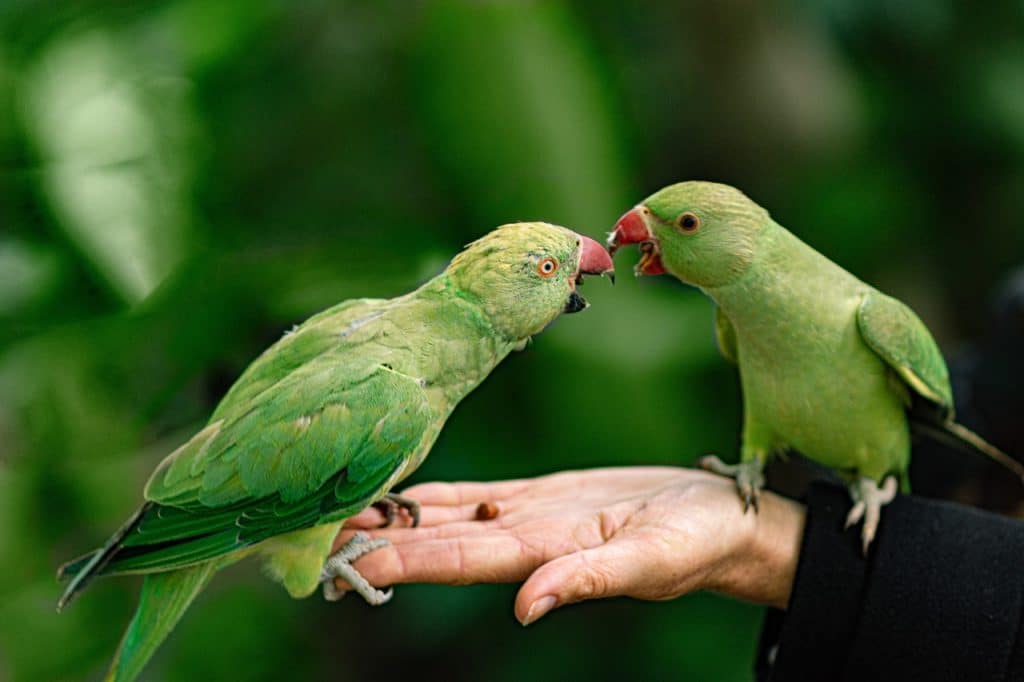
Birds come in many sizes and shapes. These birds can be great pets but can also make a good investment.
It is an expensive decision to bring home a bird. You need to plan ahead to make sure you have enough money to cover the care of your bird. Different birds require different nutritional needs. Some will need larger or smaller cages while others may require regular vet care.
It is important to be informed about the cost and care of birds before you purchase one. This will allow you to make sure that your bird has the best possible life.
Bring a new bird home: one-time costs
It can be thrilling, but expensive, to bring home a bird. Your new bird will require many supplies, as well as a first vet visit. This is to ensure that your bird is healthy. It is important to plan ahead before buying or adopting a bird. Planning ahead is key to avoiding costly and time-consuming expenses when buying or adopting a bird.
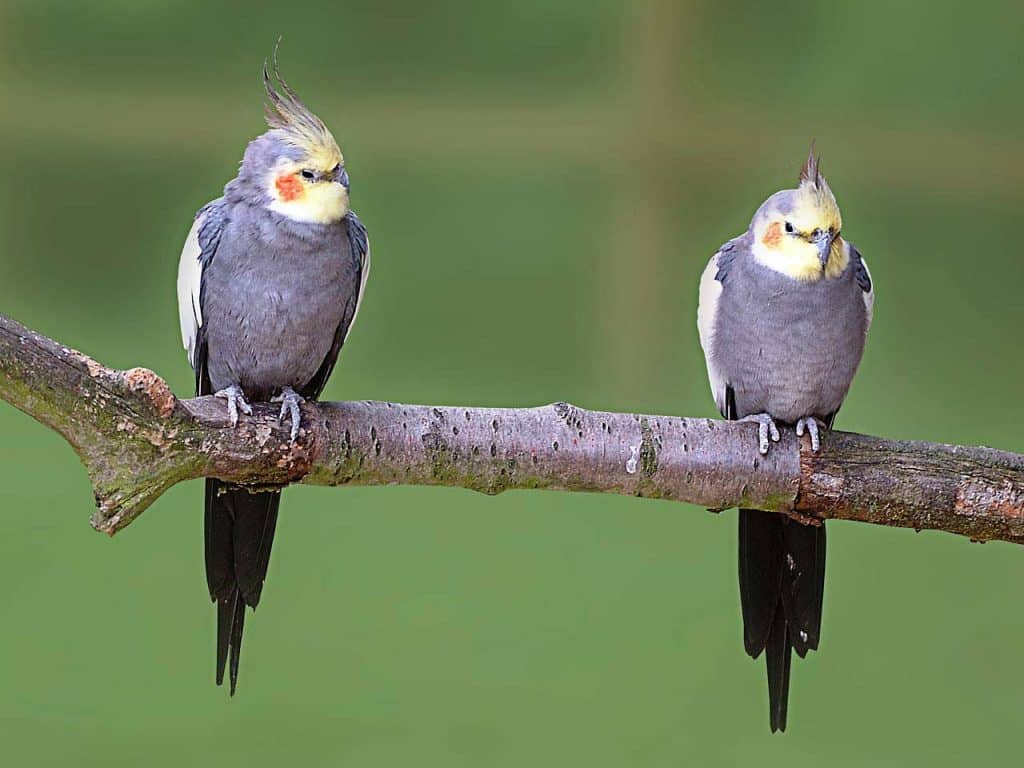
No cost
There are not many ways to get a bird free of charge. Sometimes, someone you know may be unable to care for their bird anymore and will offer it up for free. You may also find someone offering a bird for sale on local online auctions. However, it is important to be safe and make sure the bird is healthy.
Adoption
- $30-500+
Adopting a bird in need of rehoming or coming from a rescue is a great way for you to obtain a nice bird. Depending on the bird, adoption fees can run up to $100. Adoption fees are required to ensure that the bird is placed in a loving home and to support rescue organizations.
Breeder
- $20-5000+
Because different birds are more common than others, the price range for buying a bird at a pet shop or breeder is vast. Canaries and finches are likely to cost between $20-50, while macaws can go up to $5000. It is important that you only purchase birds from reputable breeders and not from anyone who is involved with wild bird trafficking.
| Parakeets | $15-40 |
| Finches | $15-100 |
| Cockatiels | $50-150 |
| Conures | $150-500+ |
| African Grey Parrots | $500-2000+ |
| Macaws | $500-5000+ |
Stock
- $200-1700+
The type of bird you have will affect the cost of supplies. A larger bird will require a bigger cage, a cover, and perch, as well as more food, than a smaller bird. These costs can help you decide what size and type of bird you want to bring home.
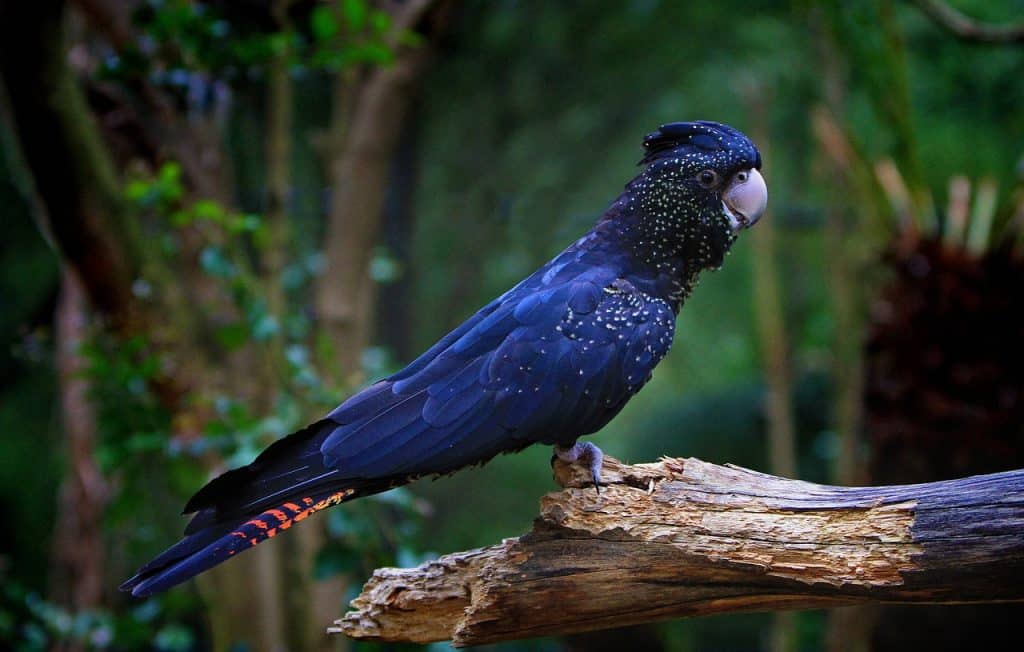
| Travel carrier | $15-100 |
| Birdcage | $50-1000+ |
| Visit to the vet (initial). | $70-300 |
| Annual and ongoing vet visits | $25-300+ |
| Water and food feeders | $5-15 per item |
| Food | $5-30 |
| Bedding | $5-15 |
| Toys | $5-30 |
| Perches | $5-30 |
| Hygiene maintenance | $5-30 per item |
| Beak maintenance | $2-10 |
| Treats | $5-15 |
| Cage cover | $15-50+ |
| Supplements | $10-15 |
Annual Expenses
- $250-1000 per annum
The cost of owning a bird can vary depending on its size and type. This is just like the cost of buying items to bring home a bird. To get an accurate idea of your annual expenses, it is helpful to know how often you will be purchasing food, bedding, or other healthcare items. Ask your pet shop or the breeder what products they use and how often.
Health Care
- $25-300+ per annum
A vet visit may be all that is needed for your bird once a year to trim its nails or wings. This would be much cheaper than a visit that involves radiographs or lab work. Annual check-ups may be required by your bird, which will increase your annual base cost. Supplements and medications may be required by your bird, which can increase the cost.
Check-Ups
- $25-150 per annum
Your location and the competition for exotic vets will affect how much your bird’s check-up costs. You can price-shop exotic and avian veterinarians in your local area to ensure your bird is getting the best care. You should discuss your concerns with your vet before you take your bird out of the house.
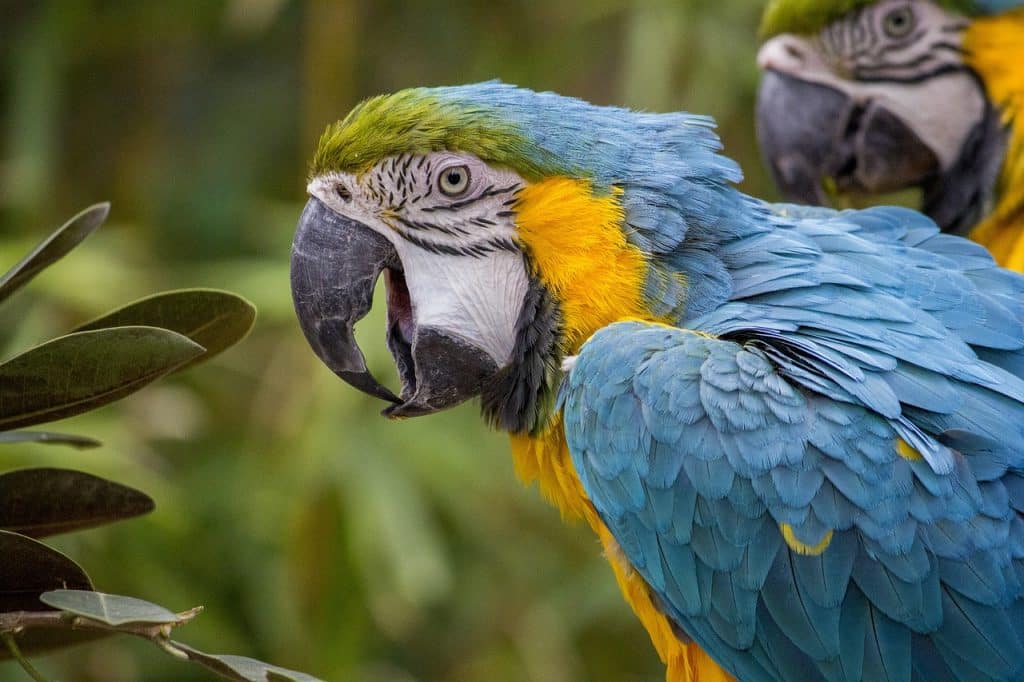
Vaccinations
- $0-120/year
Luckily, most birds don’t need vaccines. Although there is a vaccine against the polyomavirus that can be used to protect parrot-type birds at high risk for this virus, this vaccine should only be administered to these birds. Birds living in public places, such as pet shops, with breeders, or in homes with many other birds are all included. You may not consider this a necessary expense as it is not done annually. A set of vaccines will be required if your bird needs this vaccine. They usually cost between $40-60 per shot.
Take care of your beak
- $10-50 per annum
Birds’ beaks grow continuously. Some birds might need to have their beaks trimmed by a veterinarian or groomer. Cuttlebones are a good way for birds to keep their beaks trim. Beaks can be kept trimmed by eating certain foods. Beaks that grow too much can cause jaw and mouth damage. It’s important to keep your bird in check.
Parasite Treatments
- $60-150+ per annum
Parasites can also be transmitted to pet birds from cats and dogs. They can be susceptible to parasites such as mites and protozoal infections. To determine if your bird has parasites, it is important to get them checked by a veterinarian. Parasites can cause feather loss, feather shedding, rashes, and behavior changes in birds. Treatment of parasites may include a vet visit and diagnostic testing. Parasite treatment is an as-needed expense and not a recurring expense.
Emergencies
- $100-500+/year
You can prepare for any emergency that may occur to your bird by planning ahead. It is important to know where your bird can be taken during business hours, after-hours, or holidays. It is easy to get very expensive emergency vet bills. They can often cost more than $100 for a simple exam. This is why it’s important to have an emergency fund.
For ongoing conditions, Medications
- Annually, $0-150+
The cost of treating chronic conditions in your bird depends on where you live and the nature of the problem. While some conditions can be treated, others are permanent and will continue for the rest of your bird’s life. This expense can be managed by keeping in touch with your veterinarian and price shopping at licensed, reputable pharmacies.
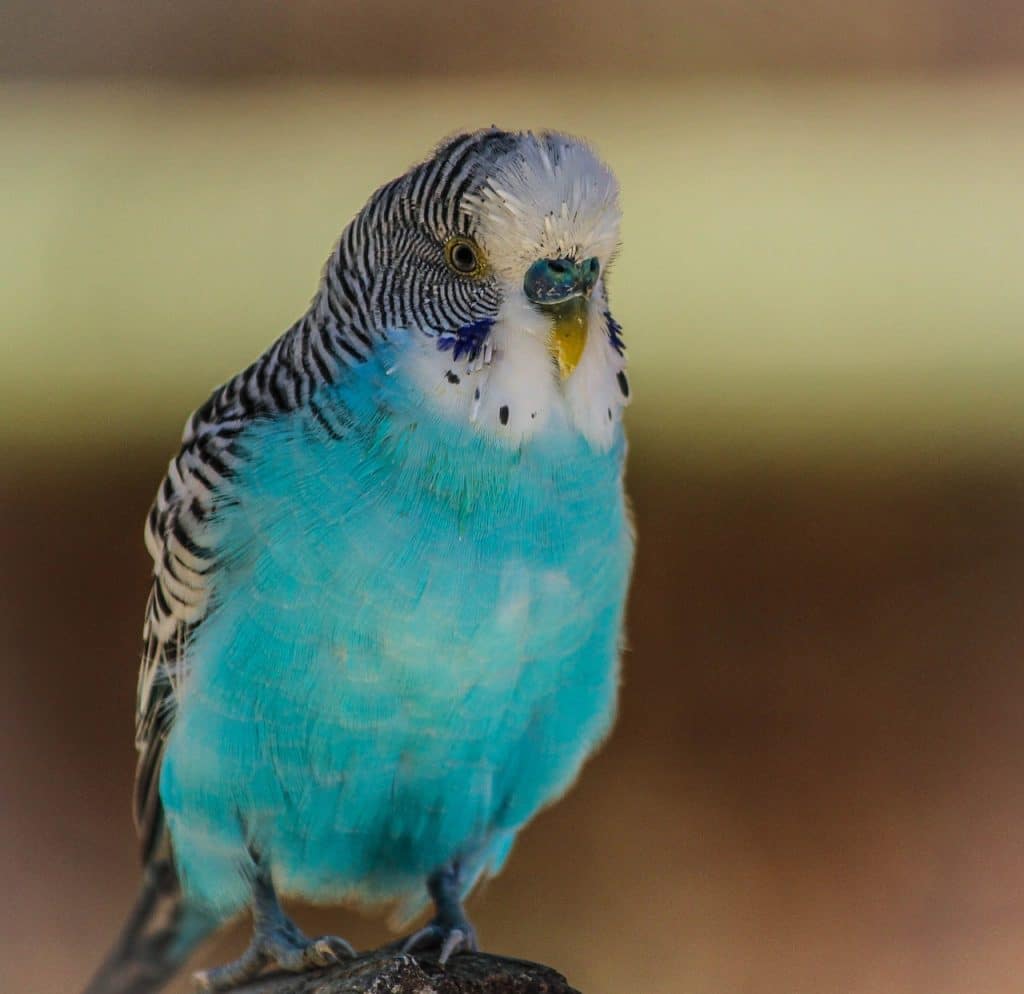
Insurance
- Annual Cost: $600-1200+
Although these plans are becoming more common, they can be costly. They will save you money in the long term if your bird requires routine vet visits. You will also be able to cover unexpected costs such as medical treatment and emergency expenses. Compare bird insurance companies and research to find the best plan for you and your budget.
Food
- $30-350/year
Your bird’s annual food cost will depend on what brand you use and where it is purchased. A macaw will require more food each year than a canary, while a macaw will need less. Some birds may need to be adjusted according to their medical needs, while others will require supplements or new foods.
Environment Maintenance
- $125-500+/year
Your bird’s maintenance costs will vary depending on what items you buy and how often they are purchased. You may need to purchase bedding packages every other month, or every three months. Your home’s setup and the requirements of keeping your bird safe will determine how much it costs to bird-proof an area. If your bird is very demanding on their perches, it may need to be replaced frequently.
| Bedding | $50-360 |
| Bird-proofing zones | $20+ |
| Perches | $5-30 |
Entertainment
- $50-150+ each year
Entertainment for your bird is as affordable as you can make it. Have fun! Toys and puzzles are great enrichment items that should be rotated or replaced when they become damaged. Birds love to play and are naturally curious. Boredom can lead to aggressive behavior in birds, which could make them destructive or aggressive towards you and other pets. It is better for everyone to keep themselves happy. There are many bird toys that come in different sizes and shapes. It is fun to play with your bird and find its likes and dislikes.
The Total Annual Cost to Own a Bird
- $250-1000+ per annum
A bird can be an expensive investment. Plan for your routine expenses and set aside money for unexpected costs. This will ensure that you are prepared to give your bird the best possible care. You may not need to provide emergency care for your bird or treat parasites. If this is the case, you might not want pet insurance. These expenses may be within your budget.
How to Own a Bird on a Budget
It can be hard to keep a bird in your budget. To help you keep on track, create a monthly budget. Before you decide to bring a bird home, it is important to evaluate your budget. You can still own a bird within your budget. However, it is important to plan carefully to avoid getting into financial trouble. Budgeting is smart money management. It does not mean you shouldn’t take enough care of your bird.
Save Money on Bird Care
When it comes to saving money while caring for your bird, price shopping, coupons, and research can be your best friends. You should be able to afford expenses such as medication and emergency care that you cannot cut by sticking to your budget. You can save money by getting your bird care at competitive prices from different shops, clinics, and online shops.
Conclusion
Being a bird owner can be a rewarding and thrilling experience. Too many people bring home birds and fail to prepare for their care.
Birds can be shy or confident. Different types of birds will have different care needs, including food and toys. Before bringing a bird home, you should consider all of these factors. A budget can help you decide which bird is best for your lifestyle and finances.
Is it worthwhile to have pet birds?
They are gregarious, engaging, and appealing, and they can frequently learn to speak human language. They can make excellent pets, but they are not suitable for everyone. These wonderful creatures may make loving lifetime companions if you have the time, space, funds, and lifestyle to support having a bird.
Is it possible for a pet bird to love you?
Few birds establish emotional attachments to humans instead of attachments to other species. They frequently express their feelings of affection to humans. This is an emotional attachment rather than a material one.
Is it OK to kiss your bird?
It is alright to adore your pet bird. That’s OK, but don’t get carried away with your feelings. Kissing your bird, for example, is not healthy, and one reason for this is the disease Psittacosis. Psittacosis is a zoonosis or illness that may be transmitted from animals (in this case, birds) to people.
Do your pet birds ever get lonely?
Birds are sociable flock creatures, and many pet bird species require almost continual interaction from their keepers. However, other species are slightly more self-sufficient or content with the companionship of other birds, allowing their caregiver to spend more time away.
Why did my bird attack my fingers?
Birds will bite from time to time if they are scared, startled, or feel cornered and defenseless. Biting is not a dominant behavior in birds, thus your bird is probably not attempting to be hostile.
Can you pet a bird?
While many juvenile birds learn to love snuggling, this can be harmful to their health as they grow, especially in female birds.
Is it okay to sleep with my pet bird?
This will be unpleasant for your bird, and birds should never be allowed to grow overly reliant on humans (or anything else). Even if there were no physically risky components to sharing your bed with your bird, you run the risk of producing a parrot who is ill-adjusted and emotionally uneasy.
Where should a bird not be touched?
To help your bird form a healthy link with you and others, limit caresses and patting to the head or feet, and urge others to do the same. The reason for this is that the sexual organs of birds are placed just behind the wings on the back of the bird.
Do pet birds become envious?
Birds can get jealous and territorial, but with the appropriate techniques, you can reduce tension and offset your bird’s jealousy. Small birds are frequently envious of other birds in the house, family members, or even one of their toys!
Is a bird a good first pet?
Birds are also excellent first pets since they adapt rapidly to their new surroundings.